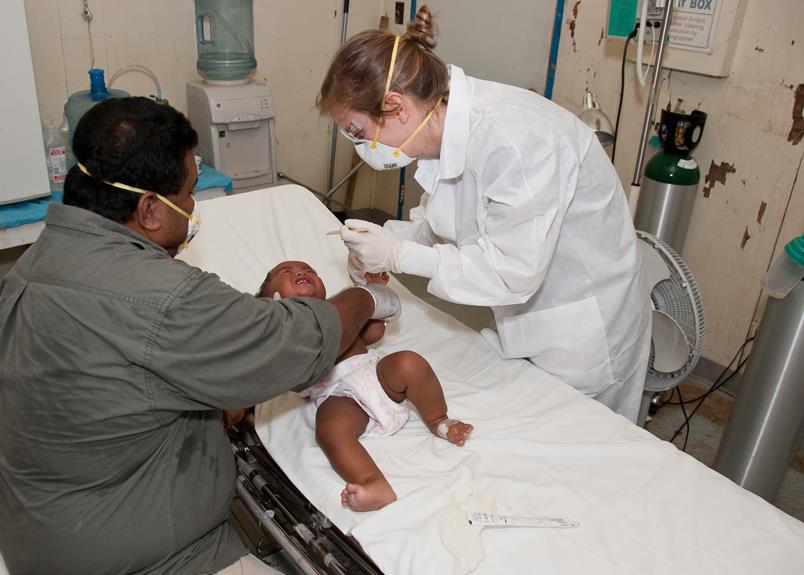To Recognize and Treat Common Vaginal Infections

Did you know that nearly 75% of women will experience at least one vaginal infection in their lifetime? Understanding the types, symptoms, causes, and treatment options for common vaginal infections is crucial for serving and supporting women's health.
In this article, we will explore the various types of vaginal infections, discuss how to recognize their symptoms, delve into their causes, and provide effective treatment options. Additionally, we will share tips on preventing recurrent infections to promote overall well-being.
Key Takeaways
- Nearly 75% of women will experience at least one vaginal infection in their lifetime.
- Common types of vaginal infections include yeast infections, bacterial vaginosis, and trichomoniasis.
- Women should seek medical advice for proper diagnosis and treatment, as some infections may require prescription medication.
- Proper hygiene practices, such as regularly washing the vulva and choosing breathable clothing, can help prevent recurrent vaginal infections.
Types of Common Vaginal Infections
There are several types of common vaginal infections that women may experience throughout their lifetime. These infections can cause discomfort and disrupt daily activities. When it comes to diagnosing vaginal infections, it is important for healthcare providers to conduct a thorough examination and take a detailed medical history. This helps in identifying the specific type of infection and determining the appropriate treatment.
In addition to medical interventions, many women seek natural remedies for vaginal infections. These remedies may include the use of probiotics, which help restore the natural balance of bacteria in the vagina. Other natural remedies may include the application of tea tree oil or yogurt to the affected area. However, it is important for women to consult with their healthcare provider before trying any natural remedies, as some may have adverse effects or interact with other medications.
Overall, diagnosing vaginal infections and exploring natural remedies can help women find relief and improve their quality of life. It is important for healthcare providers to offer guidance and support to those seeking treatment for such infections.
Recognizing Symptoms of Vaginal Infections
Healthcare providers play a crucial role in educating women about the signs and symptoms of vaginal infections, enabling them to promptly recognize and seek appropriate treatment for their condition. Prompt diagnosis and treatment are essential to prevent complications and improve overall reproductive health. Women should be aware of the common symptoms of vaginal infections, such as abnormal discharge, itching, burning, and pain during intercourse or urination. Seeking medical advice for vaginal infections is important to receive the appropriate treatment, as some infections may require prescription medication. Healthcare providers can provide guidance on self-care measures and recommend over-the-counter treatments for mild infections. By educating women about the signs and symptoms of vaginal infections, healthcare providers empower them to take control of their reproductive health and seek timely medical intervention if needed.
TABLE: Signs and Symptoms of Vaginal Infections
| Infection Type | Signs and Symptoms |
|---|---|
| Yeast infection | – Thick, white, cottage cheese-like discharge<br>- Itching and redness<br>- Burning sensation during urination<br>- Swelling and soreness of the vulva |
| Bacterial vaginosis | – Thin, gray or white discharge<br>- Fishy odor<br>- Itching and burning<br>- Vaginal irritation |
| Trichomoniasis | – Frothy, yellow-green discharge<br>- Foul odor<br>- Itching and redness<br>- Painful urination and intercourse |
Understanding the causes of vaginal infections is essential in preventing their recurrence and promoting long-term vaginal health.
Understanding the Causes of Vaginal Infections
Identifying the potential causes of vaginal infections is crucial in developing effective prevention strategies and providing targeted treatment options.
Two common types of vaginal infections are yeast infections and bacterial vaginosis. Yeast infections are typically caused by an overgrowth of Candida, a type of fungus that naturally resides in the vagina. The overgrowth can be triggered by factors such as hormonal changes, weakened immune system, or the use of certain medications.
On the other hand, bacterial vaginosis is caused by an imbalance of the bacteria that normally live in the vagina. This imbalance can be influenced by factors such as douching, multiple sexual partners, or the use of certain hygiene products.
Understanding the specific causes of these infections allows healthcare providers to tailor prevention strategies and treatment options to address the underlying factors.
Transitioning into the subsequent section about effective treatment options for vaginal infections, it is important to explore the various approaches available to provide relief and restore vaginal health.
Effective Treatment Options for Vaginal Infections
To effectively treat vaginal infections, healthcare providers can employ a combination of medication and lifestyle changes. While over the counter treatments can provide temporary relief, it is important to consult a healthcare professional for a proper diagnosis and treatment plan.
In some cases, natural remedies may also be recommended to complement conventional treatments. These remedies can include probiotics, which help restore the natural balance of bacteria in the vagina, as well as certain herbal supplements that have antimicrobial properties. However, it is crucial to note that natural remedies should not replace medical treatment, but rather be used as a complementary approach.
Transitioning into preventing recurrent vaginal infections, it is essential to address underlying issues such as hormonal imbalances, poor hygiene practices, or weakened immune system to reduce the risk of future infections.
Preventing Recurrent Vaginal Infections
Moreover, implementing proper hygiene practices and maintaining a balanced diet can be effective in preventing recurrent vaginal infections. To maintain vaginal health and prevent future infections, consider the following:
- Practice good hygiene: Regularly wash the vulva and avoid using harsh soaps or douches. Opt for gentle, pH-balanced cleansers instead.
- Wear breathable clothing: Choose cotton underwear and avoid tight-fitting pants or synthetic fabrics that can trap moisture and create a breeding ground for bacteria.
- Stay hydrated and eat a nutritious diet: Drinking plenty of water helps flush out toxins from the body, while a balanced diet rich in fruits, vegetables, and probiotics can support a healthy vaginal flora.
Frequently Asked Questions
Can Vaginal Infections Be Transmitted Through Sexual Contact?
Vaginal infections can be transmitted through sexual contact. It is important to understand the transmission methods and take appropriate prevention measures. Educating oneself and practicing safe sex can help reduce the risk of acquiring or spreading these infections.
Are There Any Over-The-Counter Remedies for Treating Vaginal Infections?
Over-the-counter remedies for treating vaginal infections are available, but their effectiveness may vary. It is important to consult with a healthcare professional to ensure appropriate treatment and to discuss any concerns or questions.
How Long Does It Typically Take for a Vaginal Infection to Clear up With Treatment?
The duration of treatment for a vaginal infection can vary depending on the specific infection and the chosen treatment option. It is important to consult with a healthcare professional for an accurate assessment and appropriate treatment plan.
Are There Any Lifestyle Factors That Can Increase the Risk of Developing Vaginal Infections?
Dietary factors and hygiene practices are lifestyle factors that can increase the risk of developing vaginal infections. These include a diet high in sugar, poor personal hygiene, and the use of scented products.
Can Stress or Hormonal Changes Contribute to the Occurrence of Vaginal Infections?
Stress can impact the occurrence of vaginal infections, as it weakens the immune system, making the body more susceptible to infections. Hormonal fluctuations can also contribute to the development of vaginal infections by altering the pH balance in the vagina.








